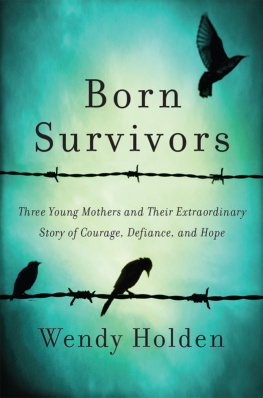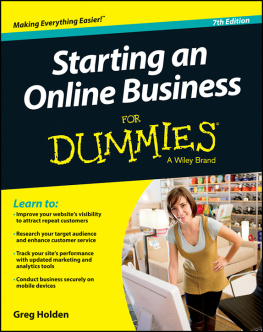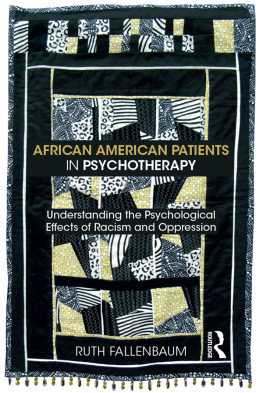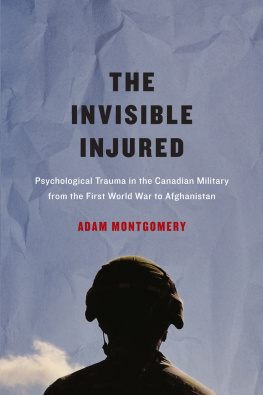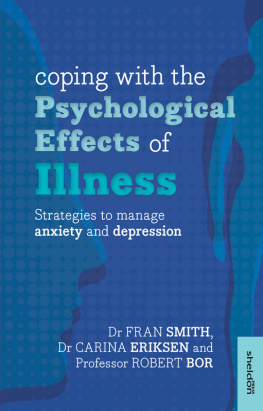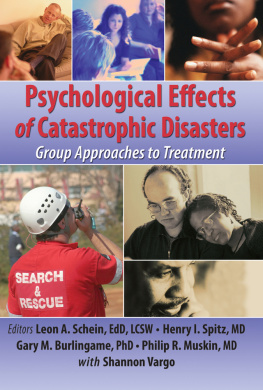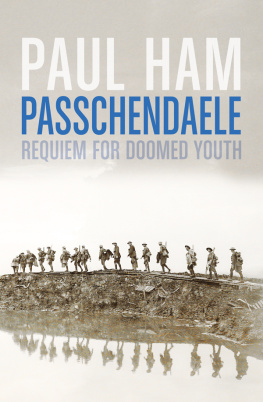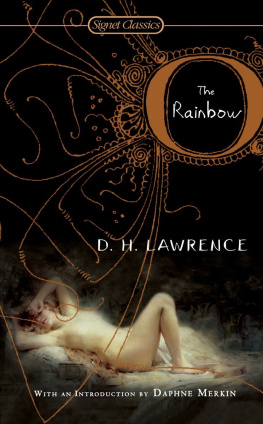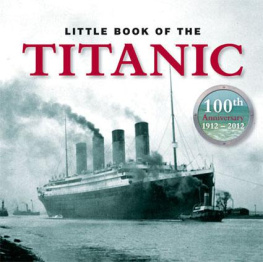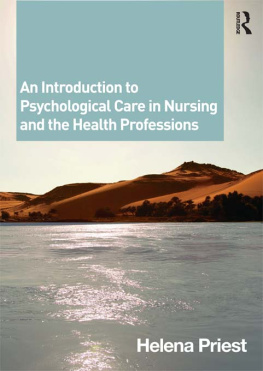Holden - Shell Shock: The Psychological Impact of War
Here you can read online Holden - Shell Shock: The Psychological Impact of War full text of the book (entire story) in english for free. Download pdf and epub, get meaning, cover and reviews about this ebook. year: 2014, publisher: WHINC, genre: History. Description of the work, (preface) as well as reviews are available. Best literature library LitArk.com created for fans of good reading and offers a wide selection of genres:
Romance novel
Science fiction
Adventure
Detective
Science
History
Home and family
Prose
Art
Politics
Computer
Non-fiction
Religion
Business
Children
Humor
Choose a favorite category and find really read worthwhile books. Enjoy immersion in the world of imagination, feel the emotions of the characters or learn something new for yourself, make an fascinating discovery.
Shell Shock: The Psychological Impact of War: summary, description and annotation
We offer to read an annotation, description, summary or preface (depends on what the author of the book "Shell Shock: The Psychological Impact of War" wrote himself). If you haven't found the necessary information about the book — write in the comments, we will try to find it.
Holden: author's other books
Who wrote Shell Shock: The Psychological Impact of War? Find out the surname, the name of the author of the book and a list of all author's works by series.
Shell Shock: The Psychological Impact of War — read online for free the complete book (whole text) full work
Below is the text of the book, divided by pages. System saving the place of the last page read, allows you to conveniently read the book "Shell Shock: The Psychological Impact of War" online for free, without having to search again every time where you left off. Put a bookmark, and you can go to the page where you finished reading at any time.
Font size:
Interval:
Bookmark:
SHELL
SHOCK
Wendy Holden
WHINC
Published in the
United Kingdom by WHINC
Copyright 1998 Wendy Holden
This revised Kindle edition
copyright 2014 Wendy Holden
Authors website
www.wendyholden.com
Wendy Holden has asserted her
right under the Copyright, Designs and
Patents Act 1988 to be identified
as the author of this work.
ISBN-13 978-1-84396-206-9
A CIP catalogue record for
this ebook edition is available
from the British Library.
Kindle ebook production
www.ebookversions.com
All rights reserved.
No part of this publication may be
reproduced, stored in or
introduced into a retrieval system
or transmitted in any form
or by any means electronic,
photomechanical, photocopying,
recording or otherwise without
the prior written permission
of the publisher. Any person who
does any unauthorised act in
relation to this publication may be
liable to criminal prosecution.
Dedicated to all
those who have known the
anguish of of shell shock
and somehow survived
Acknowledgements
This book would never have been possible without the diligence, cooperation and remarkable research skills of Sally Lindsay and Rob Coldstream at the outstanding documentary company that is Blakeway Productions.
My thanks also to Denys Blakeway, Julia Harrington, and the rest of the team. Charlie Carman at Boxtree, who first commissioned this book, later emigrated to Australia but I sincerely hope I had nothing to do with that.
Mark Lucas at Lucas Alexander Whitley was instrumental in facilitating the entire process and Dr. Martin Deahl and Hazel Orme were enormously helpful at helping me make sense of it all.
Last but never least, my bottomless thanks to Chris for supporting me uncomplainingly through months of physical and mental absence, and for always being there to read the first draft.
WENDY HOLDEN
Contents
Introduction
I wrote this book not long after Id returned from eighteen months in Baghdad reporting the First Gulf War for the Daily Telegraph , and before I realized that I was suffering from a form of shell shock.
The effects of that experience have never left me.
My book accompanied a Channel 4 documentary about the history of Post Traumatic Stress Disorder in its many disguises. I am indebted to the numerous contributors whose expertise, life experiences, or those of their family members, have qualified them to speak with courage, eloquence and humility.
For months, I listened to the moving testimonies of survivors and immersed myself in the records of the psychiatrists who tried to fathom exactly what shell shock was. Terms like knocked silly or got the wind up abounded in the First World War and many so-called malingerers were shot for cowardice or treated cruelly with electric shocks. Later after the death penalty for cowardice had been abolished, terms like battle exhaustion or combat stress came into parlance.
I spoke to my father, Edmund Ted Holden whod fought the Japanese in Burma and elsewhere and, seeing him break down for the first time fifty years after the war, I gradually came to understand that there is a mental price to pay for all that we see and do.
Shell Shock became a bestseller and I was inundated with emails and letters from readers around the world to tell me their own harrowing tales, or those of their parents. Although this book has not been updated since then to encompass the Second Gulf War and the battle for Afghanistan among other conflicts, its stories of how shell shock was first identified are timeless and its lessons are as valid today as they have always been.
This year marks the 100th anniversary of the start of the First World War and over a third of this book is dedicated to that conflict, with some remarkable testimonies from that time. The diaries and writings of war poet and pacifist Siegfried Sassoon are especially poignant. In one entry, he described conditions in Craiglockhart, the hospital he and many other officers were sent to.
... by night each man was back in his doomed sector of horror-stricken front line where the panic and stampede of some ghastly experience was re-enacted among the living faces of the dead. No doctor could save him then, when he became the lonely victim of his dream disasters and delusions.
Much of the early treatment of cases had been nothing short of brutal and it was only thanks to the compassion of psychiatrists like W.H. Rivers that a softer approach was eventually adopted.
On 28 April 1920, Lord Southborough addressed the House of Lords on his motion to establish a committee to investigate the nature and treatment of shell shock. The subject of shell shock cannot be referred to with any pleasure, he said. All would desire to forget it to forgetthe roll of insanity, suicide and death; to bury our recollections of the horrible disorder, and to keep on the surface nothing but the cherished memory of those who were the victims of this malignity. But, my lords, we cannot do this, because a great number of cases of those who suffer from shell shock and its allied disorders are still upon our hands and they deserve our sympathy and care.
Still, many of the top military brass refused to accept shell shock as a genuine illness and after the First World War, it was felt that there was not much need to debate the matter further. It had, after all, been the war to end all wars and the prevailing thought was that after such a mass bloodletting it could not possibly happen again.
They were wrong.
The First World War may have become a touchstone of horror by which all later experiences were compared, but conflicts have continued to rage around the world since then with untold physical and mental casualties for civilians, journalists and soldiers alike.
The Balkans, Iraq, Afghanistan, Darfur, Rwanda, Syria the list goes on, and with it the toll of damage as men and women sent to the front line witness and experience things that scar them mentally forever.
The alarming increase in PTSD among todays service personnel shows that there is still so much the military and the rest of humanity needs to learn and understand about what is and will always be an ongoing battle for the mind.
WENDY HOLDEN
Chapter One
Who are these? Why sit they here in twilight?
These are men whose minds the Dead have ravished.
Memory fingers in their hair of murders
Multitudinous murders they once witnessed...
Always they must see these things and hear them
Batter of guns and shatter of flying muscles
Carnage incomparable, and human squander
Rucked too thick for these mens extrication.
Mental Cases Wilfred Owen
Few have been able to express the horrors of the battlefield quite so well as the soldier poets of the First World War. Their graphic descriptions of watching friends die, killing fellow human beings or leading others to their deaths make salutary reading. The stark beauty of their poems and essays eloquently depicts the process by which the human spirit can take only so much of the monstrosities of war before something cracks.
For the doctors entrusted with the care of those whose minds eventually gave way in the 1914-18 war, there was little medical history to go on and few clear guidelines. There had never been a war on the same scale, and no one had ever seen anything like the varying degrees of mental breakdown among soldiers or experienced it in such massive numbers. The symptoms were wildly diverse, from total paralysis and blindness to loss of speech, vivid nightmares, hallucinations and memory loss. Some patients declined eventually into schizophrenia, chronic depression and even suicide. The medical consequences of severe trauma to the moral and mental state on the battle lines were, it seemed, unquantifiable. There was no telling who would be affected or why and the military and the medical establishment were caught completely off-guard.
Next pageFont size:
Interval:
Bookmark:
Similar books «Shell Shock: The Psychological Impact of War»
Look at similar books to Shell Shock: The Psychological Impact of War. We have selected literature similar in name and meaning in the hope of providing readers with more options to find new, interesting, not yet read works.
Discussion, reviews of the book Shell Shock: The Psychological Impact of War and just readers' own opinions. Leave your comments, write what you think about the work, its meaning or the main characters. Specify what exactly you liked and what you didn't like, and why you think so.


